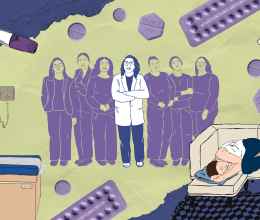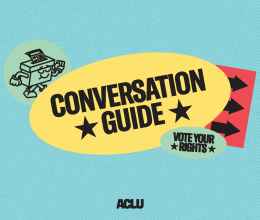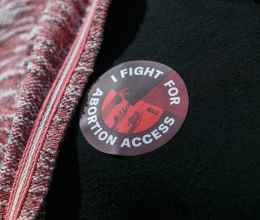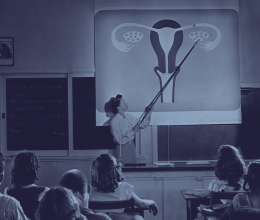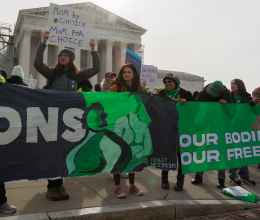
People don’t like to talk about abortion. It’s too impolite or too political. Too full of partisan talking points. Too divisive.
That’s Midwest Nice for you, right?
But if we want to make it clear that the majority of North Dakotans support abortion access, that’s got to change. With abortion access now left to the political process, those of us who care about reproductive freedom have to get engaged. The fact that people feel like they can’t talk about abortion means the small number of anti-abortion activists get to define it however suits them best. We can’t let politicians and anti-abortion activists twist the narrative about this very common, very safe medical procedure any longer.
That means we have to start talking. We have to shake the stigma that abortion is bad, shameful or wrong. We have to change the narrative around abortion and reassure people that abortion is essential health care that people across our state need – regardless of their political affiliation, their income, their race or their faith.
And there’s no better time to start talking than now.
Talking about abortion shouldn’t be controversial or taboo. We know that most North Dakotans want abortion to be safe and legal in our state. It may not feel like that’s the majority opinion, but it’s true.
When it comes to discussing abortion access, the focus should remain centered on the people who need, or will need, this critical care — and the direct harm forced pregnancy places on lives.
Despite how anti-abortion politicians may frame it, forced pregnancy is not some political talking point. Forced pregnancy is taking away a person’s constitutional and human right to control their body and their future. Denying someone abortion care has devastating and lasting consequences for the pregnant person — it can jeopardize their health, economic well-being and ability to determine their own future, for not only themselves but their family.
Abortion shouldn’t be a political issue. It’s a health care issue that has been deeply politicized to the detriment of so many people across the country.
From pre-teen survivors of sexual assault to women carrying deeply loved pregnancies that will not survive to people who know having a child isn’t right for them at this time, abortion is needed in many complex and varying circumstances.
If we can spread the truth in a clear and memorable way, we can help stop the spread of misinformation while also making the truth about abortion more widespread. We need to build rapport, share connections and walk in another person’s shoes together. This method of deeper, nonjudgmental conversations geared toward sharing values-based, tailored stories with people of various viewpoints has been shown to be effective in moving the needle even for people who start out totally opposed. It isn’t magic, and it doesn’t work every time – or even immediately – but these conversations can change the way we think and talk about abortion.
The goal isn’t necessarily to start a debate – encouraging compassion and understanding is. Remember, you can listen freely without compromising your position – and you can acknowledge someone’s views without agreeing with them.
Everyone deserves the dignity and power to decide for themselves if, when, and how to have a child. Those who disagree are counting on our silence. We cannot afford to stay quiet when our rights and our freedoms are on the line, and we won’t.
Abortion, after all, isn’t the only right at stake: the same extremists seeking to restrict abortion access even more in North Dakota are also coming for our rights to access birth control, IVF, gender-affirming health care, marriage equality and the right to vote.
It’s going to take more than one conversation to make change, but a real-life, two-way conversation is the best place to start.

